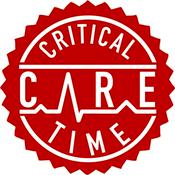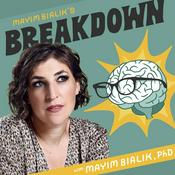The Healthy Skin Show

407 episodes

407: When A Penicillin Drug Allergy (Or Allergic To Other Meds) Goes Away: How To Figure This Out w/ Dr. Mariana Castells
2025/12/18 | 44 mins.
If you’ve got a penicillin allergy, this episode is crucial for you! That’s because you can outgrow a drug allergy like this even if you developed it as an adult. Antibiotic allergies are either misdiagnosed or fade over time. Even if you avoid taking antibiotics like the plague, having a drug allergy on your medical chart can end up limiting treatment options if you find yourself truly needing them.In this episode, my guest, Dr. Mariana Castells, breaks down how drug allergies are diagnosed, how long they take to disappear, why they can appear later in life, and how “drug delabeling” could dramatically improve your care (especially when something serious happens). Dr. Mariana Castells, M.D., Ph.D., is a world-renowned expert in allergy and immunology with over 30 years of experience. Whether you have an antibiotic allergy (or you know someone who does), this is a must-listen interview!⭐️Mentioned in This Episode:- See all the references 👉 http://www.skinterrupt.com/408 - Join me in the conversation at http://instagram.com/jenniferfugo - Stop My Rashes FREE eGuide - https://www.skinterrupt.com/stopmyrashes-pod- Fix your skin using Jennifer’s method (trusted by 900+ skin rash warriors)! Get started NOW 👉https://www.skinterrupt.com/srrdiy-pod - Want personalized help to fix your skin? Get started here with Jennifer’s virtual clinic 👉https://www.skinterrupt.com/gethelp-pod (We work with clients worldwide!)🎙 This episode is brought to you by:Quell Essentials Skincare + Supplements for Sensitive Skin 👉https://www.quellshop.com use code POD15 for 15% off Ready to figure out your skin’s root causes so you can finally fix your skin + break free from meds + flare ups?My virtual clinic works with adults worldwide struggling with eczema, psoriasis, rosacea, urticaria, hives, dandruff, perioral dermatitis + more.Trusted by 1000+ clients, we get results WITHOUT restrictive elimination diets.Schedule an assessment call at skinrepaircall.com

406: Histamine Intolerance Symptoms: Everything You Know Is Wrong (And Why A Low Histamine Diet Won’t Stop Chronic Hives)
2025/12/04 | 55 mins.
Do you feel like you get crazy histamine intolerance symptoms as your body reacts to everything — certain foods, smells, stress, or even the weather? Symptoms such as itchy skin, rashes, dermatographia, angioedema, bloating, or headaches that seem to appear out of nowhere are often linked to histamine intolerance.But before you blame your diet and dive headfirst into a low-histamine diet, know that food isn’t likely to blame. After working with over 1,000 clients, I can tell you that there are deeper, more pressing issues that drive urticaria and chronic hives.Let’s dive into why you probably don’t have histamine intolerance (despite having all the symptoms), how histamine intolerance differs from MCAS, and what’s really triggering these crazy histamine reactions. From mold exposure to liver detox issues and hormone imbalances, we explore how these hidden factors can lead to ongoing inflammation and itchy skin that just won't quit.⭐️Mentioned in This Episode:- FREE Root Cause Finder Guide - https://www.skinterrupt.com/rootcauseguide-pod - See all the references 👉 http://www.skinterrupt.com/406 - Join me in the conversation at http://instagram.com/jenniferfugo - Stop My Rashes FREE eGuide -https://www.skinterrupt.com/stopmyrashes-pod- Fix your skin using Jennifer’s method (trusted by 900+ skin rash warriors)! Get started NOW 👉https://www.skinterrupt.com/srrdiy-pod- Want personalized help to fix your skin? Get started here with Jennifer’s virtual clinic 👉https://www.skinterrupt.com/gethelp-pod (We work with clients worldwide!)🎙 This episode is brought to you by:Quell Essentials Skincare + Supplements for Sensitive Skin 👉https://www.quellshop.com use code POD15 for 15% off Ready to figure out your skin’s root causes so you can finally fix your skin + break free from meds + flare ups?My virtual clinic works with adults worldwide struggling with eczema, psoriasis, rosacea, urticaria, hives, dandruff, perioral dermatitis + more.Trusted by 1000+ clients, we get results WITHOUT restrictive elimination diets.Schedule an assessment call at skinrepaircall.com

405: Staph aureus + Eczema: Why This Inflammatory Bacteria Is A Problem You Shouldn’t Ignore (Especially When Your Skin Flares) w/ Dr. Peter Lio
2025/11/20 | 40 mins.
Is it just an eczema (atopic dermatitis) flare or could it be something else? Most people don’t realize that Staph aureus could be the hidden skin flare trigger that actively weakens your skin barrier, triggering more inflammation, itchiness, and persistent eczema symptoms. Even if it seems “normal,” the presence of Staph might point to deeper imbalances that need attention.In this episode, we dig into how Staph aureus, the gut microbiome, environmental toxins, and even air pollution can all contribute to recurring eczema.Joining me is Dr. Peter Lio, a board-certified dermatologist and respected voice in integrative dermatology. He’s a Clinical Assistant Professor at Northwestern University and has authored over 100 papers, along with a textbook on Integrative Dermatology.If you’re ready to understand why your eczema isn’t clearing up, this is a must-listen conversation filled with insight and practical takeaways.⭐️Mentioned in This Episode:- Learn how to address your Eczema root causes 👉 https://www.skinterrupt.com/stopmyeczemamc-pod - See all the references 👉 http://www.skinterrupt.com/405 - Join me in the conversation at http://instagram.com/jenniferfugo - Stop My Rashes FREE eGuide - https://www.skinterrupt.com/stopmyrashes-pod- Fix your skin using Jennifer’s method (trusted by 900+ skin rash warriors)! Get started NOW 👉https://www.skinterrupt.com/srrdiy-pod - Want personalized help to fix your skin? Get started here with Jennifer’s virtual clinic 👉https://www.skinterrupt.com/gethelp-pod (We work with clients worldwide!)🎙 This episode is brought to you by:Quell Essentials Skincare + Supplements for Sensitive Skin 👉https://www.quellshop.com use code POD15 for 15% off Ready to figure out your skin’s root causes so you can finally fix your skin + break free from meds + flare ups?My virtual clinic works with adults worldwide struggling with eczema, psoriasis, rosacea, urticaria, hives, dandruff, perioral dermatitis + more.Trusted by 1000+ clients, we get results WITHOUT restrictive elimination diets.Schedule an assessment call at skinrepaircall.com

404: What’s REALLY Causing Picky Eating In Children (And How You Can Get Your Kid To Eat What You Cook) w/ Alyssa Miller RD
2025/11/13 | 53 mins.
If mealtimes with your child have become a daily battle, you’re not alone. Picky eating isn’t always just a phase, and unfortunately many of the tactics that your parents used on you (like “You can’t leave the table until you clean your plate”) often backfire. In this episode, I am joined by Alyssa Miller, RD, a picky eating specialist, to explore the real reasons that drive picky eating in toddlers and young children, including underlying gut issues and nutrient deficiencies. So if you’re looking to get your child to eat more foods, and make mealtime peaceful again, Alyssa is here to help you find practical strategies to make your picky eater feel safe trying new foods without pressure, bribing, or giving in. ⭐️Mentioned in This Episode:- Join Alyssa’s Free workshop to stop picky eating 👉 https://www.skinterrupt.com/alyssa-miller-training - See all the references 👉 http://www.skinterrupt.com/404 - Stop My Eczema Masterclass 👉 https://www.skinterrupt.com/stopmyeczemamc-pod - Join me in the conversation at http://instagram.com/jenniferfugo - Stop My Rashes FREE eGuide - https://www.skinterrupt.com/stopmyrashes-pod - Fix your skin using Jennifer’s method (trusted by 900+ skin rash warriors)! Get started NOW 👉https://www.skinterrupt.com/srrdiy-pod - Want personalized help to fix your skin? Get started here with Jennifer’s virtual clinic 👉https://www.skinterrupt.com/gethelp-pod (We work with clients worldwide!)🎙 This episode is brought to you by:Quell Essentials Skincare + Supplements for Sensitive Skin 👉https://www.quellshop.com use code POD15 for 15% off Ready to figure out your skin’s root causes so you can finally fix your skin + break free from meds + flare ups?My virtual clinic works with adults worldwide struggling with eczema, psoriasis, rosacea, urticaria, hives, dandruff, perioral dermatitis + more.Trusted by 1000+ clients, we get results WITHOUT restrictive elimination diets.Schedule an assessment call at skinrepaircall.com

403: Crazy Link Between High Oxalate Diet, Candida Overgrowth + Heavy Metals (Especially If You Get Kidney Stones)
2025/10/30 | 24 mins.
Are oxalates really the villain in your diet that they’re made out to be?If you’ve dealt with kidney stones or spiraled down a health forum rabbit hole, you’ve probably heard that a high oxalate diet is responsible for joint pain, leaky gut + chronic skin problems. But does cutting out high oxalate foods truly fix the problem—or is it just part of the story?In this episode, we’re unpacking what oxalates really are, why your levels might be high (spoiler: it’s not always your diet), best tests for oxalates, strategies to lower oxalates (beyond just eating low oxalate foods), and the deeper root causes of high oxalates that most people miss—like candida overgrowth, gut imbalances, and even heavy metals.Confused by the oxalate fear-mongering? You won’t be after this.⭐️Mentioned in This Episode:- See all the references 👉 http://www.skinterrupt.com/403 - Join me in the conversation at http://instagram.com/jenniferfugo - Stop My Rashes FREE eGuide - https://www.skinterrupt.com/stopmyrashes-pod - Fix your skin using Jennifer’s method (trusted by 900+ skin rash warriors)! Get started NOW 👉https://www.skinterrupt.com/srrdiy-pod- Want personalized help to fix your skin? Get started here with Jennifer’s virtual clinic 👉https://www.skinterrupt.com/gethelp-pod (We work with clients worldwide!)🎙 This episode is brought to you by:Quell Essentials Skincare + Supplements for Sensitive Skin 👉https://www.quellshop.com use code POD15 for 15% off Ready to figure out your skin’s root causes so you can finally fix your skin + break free from meds + flare ups?My virtual clinic works with adults worldwide struggling with eczema, psoriasis, rosacea, urticaria, hives, dandruff, perioral dermatitis + more.Trusted by 1000+ clients, we get results WITHOUT restrictive elimination diets.Schedule an assessment call at skinrepaircall.com
More Health & Wellness podcasts
Trending Health & Wellness podcasts
About The Healthy Skin Show
Listen to The Healthy Skin Show, On Purpose with Jay Shetty and many other podcasts from around the world with the radio.net app

Get the free radio.net app
- Stations and podcasts to bookmark
- Stream via Wi-Fi or Bluetooth
- Supports Carplay & Android Auto
- Many other app features
Get the free radio.net app
- Stations and podcasts to bookmark
- Stream via Wi-Fi or Bluetooth
- Supports Carplay & Android Auto
- Many other app features


The Healthy Skin Show
download the app,
start listening.




































